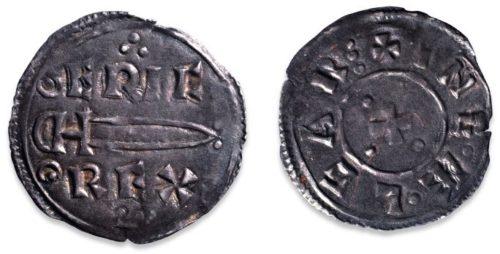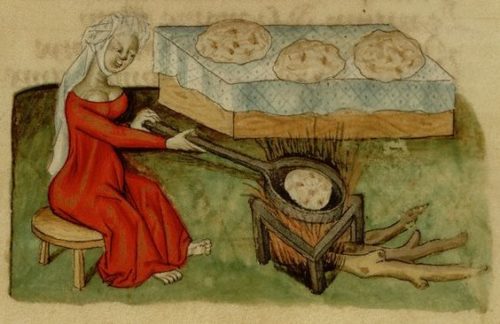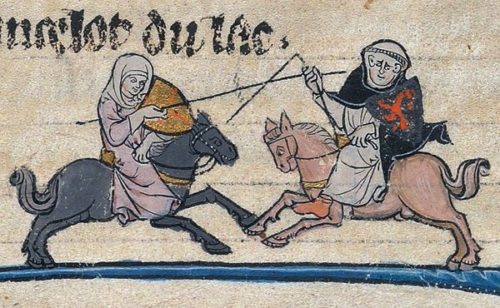
2016 has been a rough year of violence and loss. Every year brings such happenings, but this one felt particularly dark. Yet there remains some small twinkle of light. As of this writing, Keith Richards is still here to give us all hope that immortality is indeed possible.
In 2017, there will be a new president of the United States of America. Despite the sometimes-comical efforts to prevent his ascension to the highest office in the land, he will be sworn in Jan. 20. His leadership will have lasting consequences not just for this nation, but also for the world.
But what is a leader? What does it mean to rule over others? The lore of Ásatrú and Heathenry provide some possible answers.
Hater of Gold
With his famous poem Höfuðlausn (“Head Ransom”), the tenth-century Icelander Egill Skallagrímsson won his freedom from Eiríkr blóðøx (Eric Bloodaxe) by singing the praises of the Norwegian ruler. As he flatters the king, Egill notably calls him baugskati: “one who breaks, throws, hates gold.”

Silver penny with the mark of Eiríkr blóðøx [Courtesy The British Museum]
In a poem praising the military commander Arinbjörn, Egill writes:
The man in Fjordane
shows money no love:
he banishes rings
that drip like fruit,
defies the ring-clad
verse-brew’s thief,
hacks treasures in half,
imperils brooches.
The thief of the verse-brew is Odin, who steals the mead of poetry; his ring Draupnir (“Dripper”) drips out eight gold rings on every ninth night. In this verse, Egill says that Arinbjörn defies any collecting of wealth and instead destroys treasure.
How the treasure is destroyed is the important element here. To banish rings is to give them to one’s followers. To hack treasures in half is to cut gold objects apart and hand out the bits of precious metal. To imperil brooches is to break off the gems, cut apart the metal, and divide all among the leader’s people.
A vast number of examples of this sort of imagery can be found in Old Norse poetry and saga. In Ólafs saga Tryggvasonar (“Saga of Olaf Tryggvason”), the same Eiríkr blóðøx praised by Egill is referred to as “mover of treasure” (because he gives it away) and “gladdener with fire of hands” (because he makes men happy by giving them gold, that thing that shines on one’s hand as a ring).
What is more difficult to find is any example that praises a leader for piling up wealth for himself, for collecting treasure and amassing a stockpile for his own personal benefit.
The most admirable trait for a leader, the most widely used stock epithet of praise for a ruler, is that he hates the hoarding of precious objects and instead freely shares them with his community.
Of course, this is a poetic and literary ideal, but it is an ideal. The most praiseworthy characteristic of an honored leader is that he divides all acquired wealth among those over whom he rules.
Keeper of the Bread
The roots of our language often show the roots of our concepts. The modern words lord and lady are descendants of the Old English hlāfweard and hlǣfdīge. The first literally means “loaf-ward” or “bread-keeper,” the second “loaf-kneader” or “bread-maker.”

Woman making bread in a 15th-century French manuscript [Public Domain]
Following the evolution of the term, the modern word lord with its meaning today evolved from a sense of “bread-keeper” to “one responsible for the community” to “nobleman.” Along the way, it retained the sense that the lord was the one who saw to the well-being of all who lived on his property.
Similarly, our modern word lady evolved over time from the term meaning “bread-kneader,” the one who made and supplied food for those in her community. As with the male term lord, the female term evolved from one referring to a “maker of bread” to “one who provides for the community” to “noblewoman.” The idea of the lady providing sustenance for all remained constant.
There is less a sense of the glorious leader in these terms than there is in the more epic “hater of gold.” The lord and lady are less concerned with winning and spreading wealth than they are with protecting health.
There is also a homier feeling here. The lord and lady do not oversee the members of the war band and reward them with treasure for their service, they instead make sure that all within their lands are given the basic staples necessary to survive.
The Old English term hlāfǣta means “servant,” but its literal meaning is “loaf-eater” or “bread-eater.” In conjunction with the terms that became our lord and lady, we can see that there was a social relationship in which the local leaders were responsible for all on their land, from the closest family members to the lowest servants.
To use the terminology of the mythic poetry, the lord and lady were responsible for all classes of men: “all holy offspring, greater and lesser, the children of Heimdall.”
Today’s Leaders
What does all of this tell us about today’s leaders?
We just suffered through a grindingly long and seemingly endless presidential campaign between two corporate candidates who both have deep ties to the absolutely wealthiest sectors of American society.

Woman and man jousting in a 13th-century French manuscript [Public Domain]
Following this brief examination of the ideal leader in northern lore, it is clear that two of the most important characteristics are sharing wealth among the community and seeing that the basic nourishment needs of the community are met. This sounds an awful lot like the redistribution of wealth and programs for social welfare.
Before people start throwing around terms like “cultural Marxist” and “social justice warrior,” let’s try to be dispassionate about this.
The most common term of praise for a ruler among the Old Norse poets was “hater of gold” or some variant. Without a doubt, this meant that the ideal ruler handed out wealth among his followers rather than hoard it for himself.
The roots of the words lord and lady are terms meaning those who produce and share sustenance among all below them on the social scale, from family members down to the lowest servants.
As practitioners of Ásatrú and Heathenry, are our lives all about celebrating Viking machismo, or do we want to embrace the wider elements of worldview? If we do choose to expand beyond a religion of cartoonishly violent memes, how can we apply this worldview to our modern lives?
We can begin by looking at our leaders and asking how they measure up to the standards preserved in the lore and language.
Does our new president-elect place the sharing of wealth with American citizens over building his own personal treasure hoard? Does he see his core defining duty as guaranteeing that the basic nourishment of all Americans is taken care of, regardless of their social standing or income level?
If the answer to these questions is no, then we need to question what kind of a leader we will have beginning January 20.
Note: Sources used for this article include Heimskringla (trans. Finlay and Faulkes), Icelandic-English Dictionary (Cleasby and Vigfússon), The Lost Beliefs of Northern Europe (Davidson), Oxford Dictionaries, Oxford English Dictionary, and The Sagas of Icelanders (Penguin Classics).
* * *
The views and opinions expressed by our diverse panel of columnists and guest writers represent the many diverging perspectives held within the global Pagan, Heathen and polytheist communities, but do not necessarily reflect the views of The Wild Hunt Inc. or its management.
The Wild Hunt is not responsible for links to external content.
To join a conversation on this post:
Visit our The Wild Hunt subreddit! Point your favorite browser to https://www.reddit.com/r/The_Wild_Hunt_News/, then click “JOIN”. Make sure to click the bell, too, to be notified of new articles posted to our subreddit.
Thanks for this. I like to stress ancestor reverence and the knowledge and wisdom they show us, if we but look.
Very nicely written! One thing: The American President is a leader, not a “ruler over others” – this is as the Founders envisioned the office and why one man or woman may not serve more than two terms. It remains to be seen whether or not this administration will understand this fundamental difference in government over the coming years.